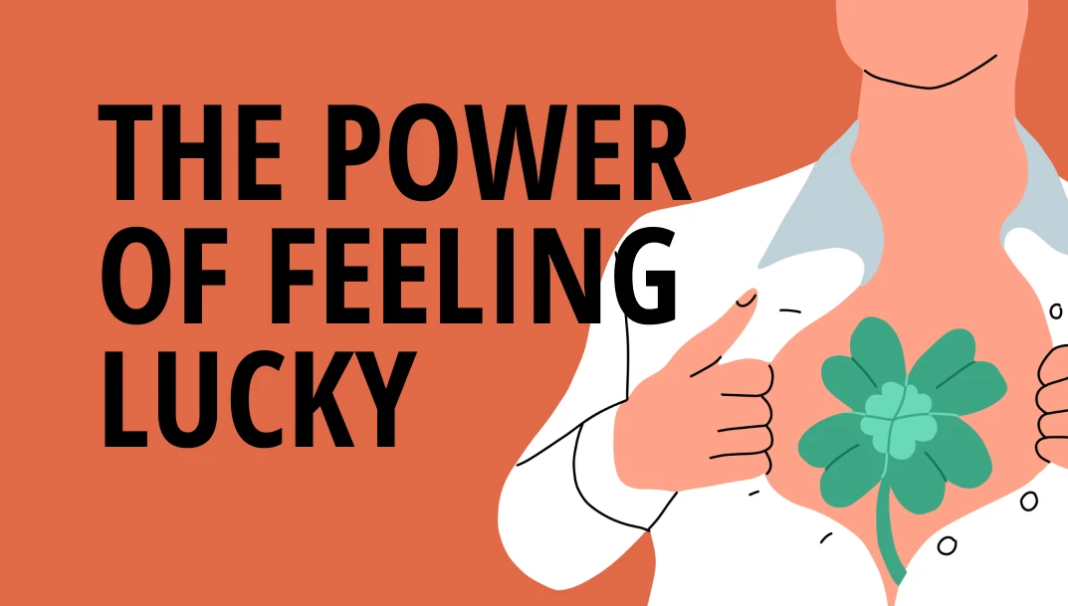Richard Branson, founder of the Virgin Group, often attributes much of his success to one simple factor: luck. Throughout his career, he has survived several near-death experiences — from a shipwreck in the 1970s to risky business ventures that could have ended in disaster. His first major hit, Tubular Bells by Mike Oldfield, was an unexpected triumph, selling nearly 20 million copies after being featured in The Exorcist. His bold decision to launch Virgin Atlantic even put him at odds with his bank, but today, the airline is thriving, with revenues surpassing £3 billion in 2023.
When asked about the role of luck in his journey, Branson acknowledged its influence while also emphasizing hard work. “By working hard, by making the right moves, you can create your own luck,” he said. His story begs the question: is success really about luck—or is it something deeper? And if luck plays a role, who actually benefits from it?
The Science Behind the Belief in Luck
While some dismiss luck as mere superstition, research suggests that simply believing in luck can dramatically influence outcomes. A 2014 study led by James Sly at Missouri State University delved into how this belief affects our confidence and behavior.
In the experiment, 171 students completed a series of questionnaires assessing their belief in superstition, their sense of personal luckiness, and their perceived control over life events—also known as self-efficacy. Participants then engaged in a task predicting 30 computer-simulated coin tosses. Regardless of their guesses, each participant was programmed to win exactly 15 out of 30 tosses. However, the way the results were presented varied: some saw their success rate improve over time (ascending), some saw it decline (descending), and others received random feedback.
Afterward, participants were asked to estimate how many tosses they thought they had predicted correctly and how they expected to perform in future rounds. They then faced a separate challenge: forming as many words as possible from a jumble of letters, setting personal goals beforehand.
The findings were revealing. Those who strongly believed in luck and received descending feedback (starting strong but ending weaker) not only recalled their performance more positively but also set higher goals for the puzzle and dedicated more time to solving it. In other words, even when luck appeared to diminish, their belief in being lucky boosted their confidence for unrelated tasks.
Luck as a Psychological Advantage
This study highlights a counterintuitive truth: believing in luck can make people more motivated and resilient, even in the face of setbacks. The belief fosters a sense of control over future outcomes, encouraging individuals to take on new challenges with optimism.
Further research supports this idea. Superstitions, often dismissed as irrational, may serve a valuable purpose by alleviating anxiety and boosting self-efficacy during uncertain situations. For example, a nervous soccer player might believe his “lucky socks” improve his performance. While the socks themselves don’t affect the game, the confidence they inspire can make a real difference.
Importantly, these studies don’t claim that luck exists in a mystical sense. Instead, they demonstrate how belief in luck can alter our mindset, changing how we approach opportunities and obstacles.
Interestingly, those who don’t believe in luck may actually fall into a different kind of superstition. In the same 2014 study, participants with little belief in luck who experienced success in the coin tosses tended to expect worse outcomes ahead—a reflection of the gambler’s fallacy. They assumed that good luck now meant bad luck later, even though the coin tosses were entirely random. As Sly observed, “Those who think they’re being rational by rejecting superstition can behave just as irrationally as those who embrace it.”
The Balance Between Control and Chance
Believing in luck has its benefits, but there are limits. Psychologists often talk about the concept of locus of control—whether people attribute their successes and failures to internal factors (like their own efforts) or external ones (like fate or luck).
Those with an internal locus of control tend to be more successful academically, professionally, and psychologically. They believe their actions shape their destiny. In contrast, those who lean too heavily on external factors may feel powerless or disengaged, assuming outcomes are beyond their control.
However, both perspectives offer advantages. People with an internal locus may struggle with self-blame when things go wrong, while those with an external locus might find it easier to let go of failures. The key is finding a healthy balance: recognizing what you can control and accepting what you cannot, without surrendering entirely to fate.
Creating Your Own Luck
Richard Branson’s career is a testament to this balance. His boldness led him to take massive risks, including mortgaging his home to fund new ventures. “If something is important enough, you should go and bet the damn house,” he once said. His belief in luck didn’t make him careless—it made him daring.
Believing you’re lucky encourages risk-taking, fuels perseverance, and enhances resilience—all qualities essential for success. Yet, it’s important not to abandon personal responsibility or hard work. Unlike the magical liquid luck in the world of Harry Potter, success isn’t handed out to those who simply wish for it.
In the end, believing in luck might just be a clever psychological strategy. It inspires confidence, fosters a positive outlook, and can lead to better performance. But it works best when paired with effort, vision, and a willingness to seize opportunities when they arise.
As Branson demonstrates, sometimes, feeling lucky is simply believing that success is possible—and then doing everything you can to make it happen.





